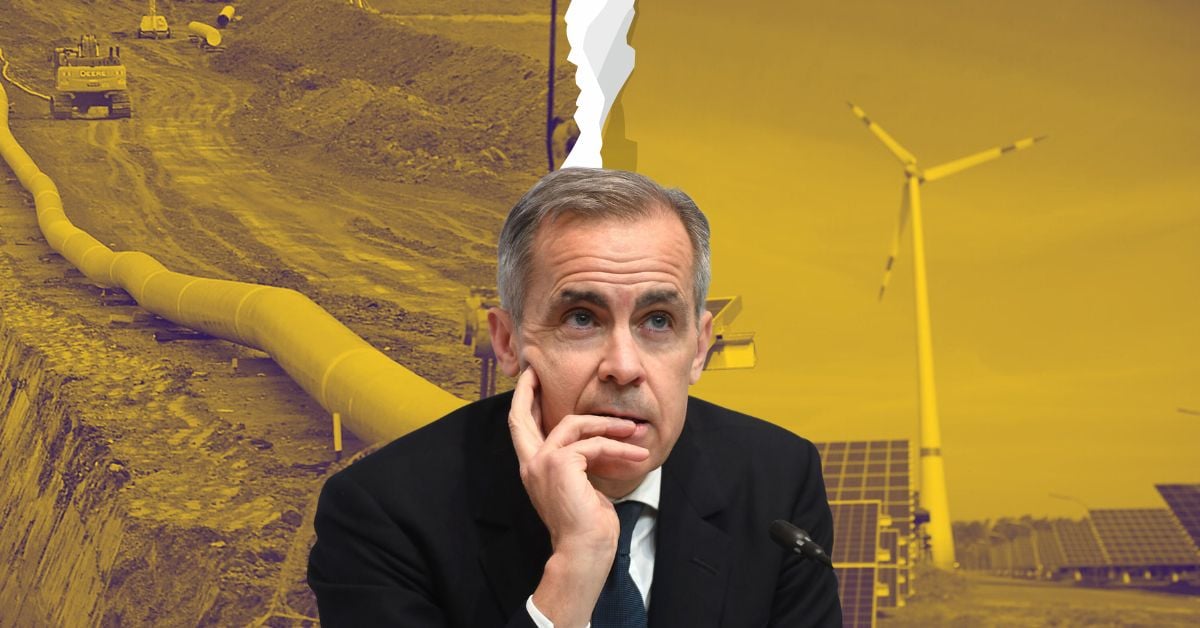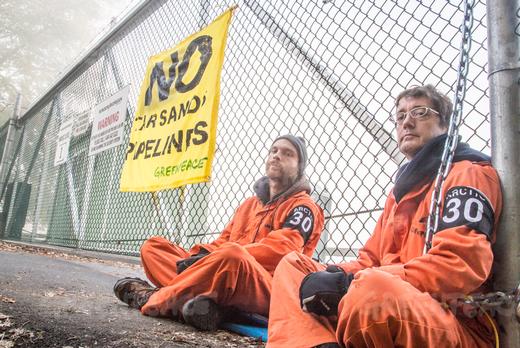20 April 2018 (TORONTO) — HSBC, Europe’s biggest bank, confirmed today that it will no longer provide project finance for new tar sands projects, including the construction of any pipelines.
HSBC’s policy would exclude the bank from providing project financing for TransCanada’s Keystone XL and Enbridge’s Line 3 Expansion pipelines and it would appear to exclude the bank from providing any loans specifically to cover the funding shortfall for Kinder Morgan’s Trans Mountain Expansion pipeline. HSBC also stated an intention to reduce its overall exposure to tar sands.
HSBC’s move, disclosed in its new Energy Policy, is the most recent in a series of decisions by international financiers to distance themselves from controversial oil pipelines, including those from the tar sands and those being built by ETP, the company behind the Dakota Access pipeline. French banks BNP Paribas and Natixis, Dutch bank ING, insurance and investment giant Axa, and Sweden’s largest pension fund, AP7, all made similar announcements in 2017.
Greenpeace is calling on Toronto-Dominion Bank and the Desjardins Group to rule out financing new tar sands pipelines. TD is a major funder of tar sands pipelines, despite promises to customers that they can ‘bank on’ its commitment to the environment.
Keith Stewart, Senior Energy Strategist at Greenpeace Canada, said: “Europe’s two biggest banks saying they will not finance new tar sands pipelines sends Canada’s oil industry and its political boosters a message they can’t afford to ignore. Financial institutions around the world are seeing the reputational and material risks these pipelines pose in a post-Paris world where respecting Indigenous rights and the need to transition off of fossil fuels is smart business and not just good public relations. Before deciding to write a cheque to Kinder Morgan, Justin Trudeau should ask himself if he wants to rush in where HSBC fears to tread.”
John Sauven, Executive Director of Greenpeace UK said: “This latest vote of no-confidence from a major financial institution shows that tar sands are becoming an increasingly toxic business proposition. It makes no sense to expand production of one of the most polluting fossil fuels if we are serious about dealing with climate change in a post-Paris world. HSBC has got the message. Now Barclays need to decide if it wants to be the only UK bank offering project finance to tar sands pipelines.” HSBC has previously participated in revolving credit facilities for TransCanada (the company building KXL) and Enbridge the company building the Line 3 expansion.
-30-
Notes
- BNP Paribas in October 2017 announced a decision to no longer finance “pipelines that primarily carry oil and gas from shale and/or oil from tar sands,” and will sever “business relations with companies that derive the majority of their revenue from these activities.” Dutch bank ING confirmed in June that its oil sands policy excludes financing tar sands pipelines. Sweden’s largest pension fund, AP7, announced that it will divest from TransCanada on the grounds that its proposed pipelines in Canada and the US were incompatible with the Paris Agreement. In December 2017 Natixis pledged to no longer fund “exploration and production projects concerning oil extracted from tar sands; infrastructure projects (pipelines, terminals and others) primarily devoted to transporting or exporting oil extracted from tar sands” or companies whose business primarily relies on exploiting oil extracted from tar sands”, and insurance and investment giant Axa announced the “divestment of over Euro 700 million from the main oil sands producers and associated pipelines, and the discontinuation of further investments in these businesses” and no longer providing insurance to tar sands or associated pipeline businesses.
- According to S&P Global Market Intelligence, HSBC is the largest bank in Europe and BNP Paribas is the second largest.
- Greenpeace has published a report for banks and their shareholders outlining the financial and reputation risks that banks could face in arranging and providing finance for companies intending to build tar sands pipelines. See Figure 1 on page 3 for estimated additional greenhouse gas emissions per year resulting from proposed tar sands pipelines.
- On Wednesday, the controversy over Justin Trudeau’s support for tar sands pipelines followed him to the Commonwealth Heads of Government meeting in London, where the Canadian High Commission was rebranded ‘Crudeau Oil HQ’ and blockaded with a 30m pipeline. Since March, weeks of peaceful direct actions in British Columbia against the Trans Mountain Expansion tar sands pipeline have resulted in the arrests of about 200 people.
- HSBC’s new energy policy is available here.
Contact
Keith Stewart, Senior Energy Strategist, Greenpeace Canada, 416-659-0294.
Jesse Firempong, Communications Officer, Greenpeace Canada, 778-996-6549, [email protected].


